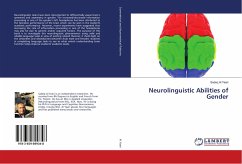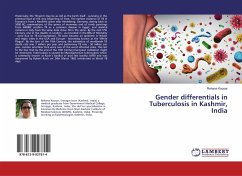
CLINICIAN GENDER AS A FACTOR OF COUNTERTRANSFERENCE
IN THE TREATMENT OF CLIENTS DIAGNOSED WITH BORDERLINE PERSONALITY DISORDER
Versandkostenfrei!
Versandfertig in 6-10 Tagen
32,99 €
inkl. MwSt.

PAYBACK Punkte
16 °P sammeln!
This qualitative study explores the interplay between clinician gender and experiences of countertransference (CT) in treatment of clients diagnosed with Borderline Personality Disorder (BPD). The central hypothesis of this study is that constructions of gender will influence experiences of CT in the treatment of BPD clients, therefore having a meaningful effect on the therapeutic relationship and clinical treatment. Utilizing twelve qualitative individual interviews with clinicians who have treated clients diagnosed with BPD, this study examined clinicians' perceptions of treatment, including...
This qualitative study explores the interplay between clinician gender and experiences of countertransference (CT) in treatment of clients diagnosed with Borderline Personality Disorder (BPD). The central hypothesis of this study is that constructions of gender will influence experiences of CT in the treatment of BPD clients, therefore having a meaningful effect on the therapeutic relationship and clinical treatment. Utilizing twelve qualitative individual interviews with clinicians who have treated clients diagnosed with BPD, this study examined clinicians' perceptions of treatment, including experiences and management of psychodynamic phenomena. The study also explored clinicians' use of different theoretical and treatment models, their views on the importance of therapist gender and the need for supervision when working with this population.Major findings reveal that gender identity is meaningful in the countertransference experiences of clinicians treating BPD clients due to the pervading assumptions and stereotypes held by both clinicians and clients.












